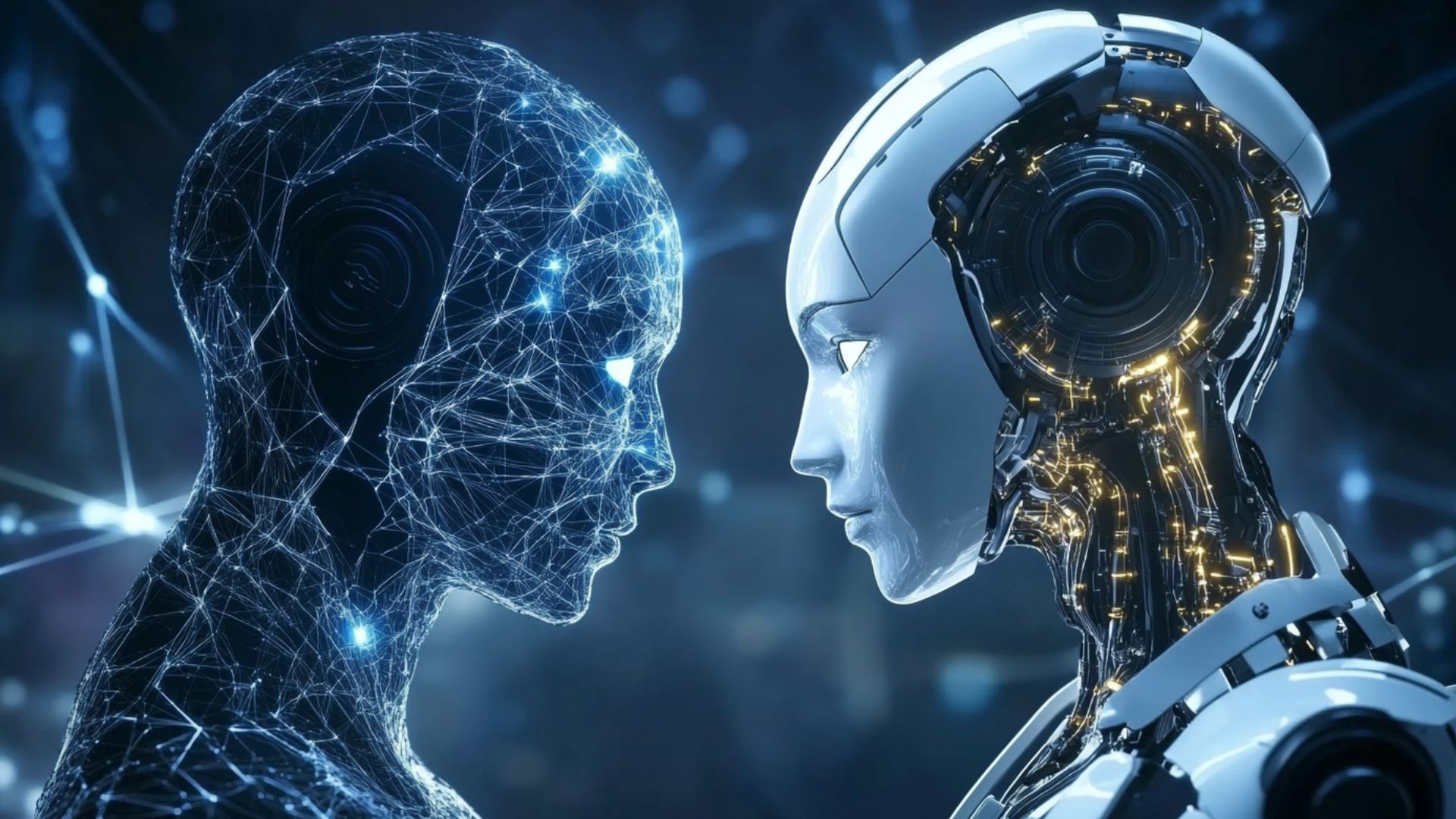Emotional Support and Companionship: How AI Helps Combat Loneliness

Loneliness is a growing issue in today’s world. Ironically, many people still struggle with feelings of solitude. They are more socialized than ever through social media and web platforms. It doesn’t help them to feel needed. Modern lifestyles contribute to this disconnection. More people are living alone or far from family and friends. Isolation is not just a personal struggle, this is a public health issue. It is associated with a higher risk of depression and anxiety.
Artificial intelligence (AI) companionship is emerging as a unique solution. Its purpose is to address these challenges. It offers a new form of emotional support and interaction. AI can provide companionship to those feeling isolated. It simulates human-like conversation and empathy. AI helps to bridge gaps that human connections might miss. Human-AI interaction is evolving to create personalized and engaging experiences that range from chatbots to virtual friends. AI offers comfort, encouragement, and a reliable listening ear. It could be vital in combating loneliness in modern society.
Understanding Loneliness and Its Impacts
Loneliness affects people emotionally and has profound psychological and physical consequences. Here’s a look at some of the most profound effects loneliness can have:
- Mental Health Decline: Chronic loneliness is harmful and often leads to increased levels of stress, anxiety, and depression. Regular human relationships are important. Individuals may struggle with emotional balance.
- Cognitive Decline: Studies show prolonged loneliness is associated with memory loss. A decline in cognitive functions also appears. Social interaction stimulates the brain. The absence of it can accelerate mental aging.
- Heart Health Risks: Loneliness has been linked to higher blood pressure. It also leads to increased risks of heart disease. Social connections help lower stress hormones. They can benefit cardiovascular health.
- Weakened Immune System: Isolation can impair its function. This makes the body more susceptible to infections and diseases.
Human and AI partnerships are now being explored to combat these impacts. Technology offers new ways and provides connection and emotional support for those facing loneliness.
Mental Health Consequences of Loneliness
Loneliness has significant mental health repercussions. It can profoundly affect a person’s well-being. Here are some expected consequences:
- Anxiety: Extended loneliness can lead to heightened worry. Without consistent social support, people may become overly self-conscious. They also fear social situations, leading to a cycle of isolation.
- Depression: A lack of meaningful connections often triggers feelings of hopelessness and sadness. It can develop into chronic depression. Regular AI companionship interactions provide emotional stability. They are lacking when someone is isolated.
- Social Withdrawal: Persistent loneliness often causes individuals to withdraw further. They avoid social interactions and develop a negative perception of relationships. This withdrawal makes it even harder to break the loneliness cycle.
- Low Self-Esteem: Isolation can erode self-worth. People may internalize feelings of inadequacy or believe they are unworthy of companionship.
Robotic companionship offers an innovative approach to addressing these mental health impacts. It provides a safe and accessible interaction. These companions alleviate feelings of isolation through artificial intelligence and human relationships. They allow users to rebuild confidence and emotional resilience. This is pivotal in the comfort of a virtual connection.
The Importance of Companionship for Well-being
Companionship is vital for emotional health. It provides comfort, connection, and a sense of belonging. How does a robotic companion chatbot enhance well-being? Let's explore:
- Emotional Support: Companions provide a listening ear and a source of comfort. They help to alleviate stress, sadness, and anxiety. An AI companion chatbot can simulate this support. It offers empathy and understanding even during difficult times.
- Increased Happiness: Positive social interactions may be virtual or face-to-face. They stimulate the release of feel-good hormones. They are oxytocin and serotonin. Such interactions boost overall mood and happiness.
- Reduced Stress: Companionship helps lower its levels. This creates a safe space for sharing worries and concerns. Even AI companionship can help diffuse daily stress. It offers constructive, friendly dialogue.
- Enhanced Self-Esteem: Knowing someone is there can strengthen self-worth. This happens even as an AI companion. It provides reassurance and reduces feelings of isolation or inadequacy.
- Encouragement for Personal Growth: Companions, human or AI, often inspire us. We pursue personal goals, develop new habits, or build resilience. AI contributes to personal growth and mental well-being.
Human companionship support can enrich one’s emotional life. It creates a balanced support system for a healthier and more connected experience.
AI Technologies Offering Emotional Support

Robot innovations are transforming emotional support. They provide companionship in ways that simulate human interaction. There’s an overview of the main types of AI that serve as companions. Let's explore:
- Chatbots: These AI-driven companions engage in real-time conversations. They offer a sympathetic ear and helpful responses to those who feel isolated. Designed to recognize emotional cues, chatbots listen, offer advice, and encourage self-reflection. Many are equipped with AI-driven sentiment analysis. It allows them to adjust responses based on users’ emotions. AI companion chatbots help foster a more personalized, comforting experience. Famous examples include Woebot and Replika. They are designed to offer conversational support.
- Robotic Companions: Physical AI-driven robots are becoming popular as social companions. Examples include Sony's Aibo (a robot dog) and SoftBank's Pepper. Such robots offer social interaction through expressions, touch responses, and even “personalities.” Especially in elder care, human-robot companions provide tactile and sensory companionship. It can reduce loneliness and encourage interaction.
- Virtual Assistants: Siri, Alexa, and Google Assistant are not designed as emotional companions. They can still provide companionship through daily interactions. These AIs set reminders, answer questions, and engage in casual conversation. Virtual agents offer consistency and a familiar voice. It can give comfort and routine.
The impact of technology on human relationships is significant. It concerns virtual assistants and mental health apps. They help to bridge the gap in human connections. Such apps mimic companionship. They offer empathetic interactions. These technologies provide a valuable resource. This is crucial for those needing emotional support.
Chatbots and Conversational Agents
Integrating chatbots and virtual reality (VR) technologies revolutionize how we experience emotional support. These technologies create immersive companionship experiences. They bridge the gap between human connections and artificial interactions. How are they shaping the future of companionship? Let’s explore the examples:
- Virtual Reality Companionship: VR environments offer a completely immersive experience. There, users can interact with virtual companions in simulated spaces. VR platforms are Oculus and VRChat. They allow people to interact socially, play games, or explore environments with avatars. Such platforms provide rich, engaging, emotional support. VR can create shared experiences in virtual worlds. This makes it especially beneficial for those isolated or unable. VR enables physical and social interactions.
- AI-Driven Interaction: AI companion bots and robots are increasingly equipped. They have machine learning (ML) and natural language processing (NLP) capabilities. Such technologies allow them to simulate realistic conversations. Such chatbots adapt to users' needs over time. This enhances the experience of being understood and connected. Even though the companion is artificial. These A.I. Companion systems can personalize interactions. They provide guidance, comfort, and empathy tailored to the user.
- Robot Companion: They are designed for elder care or mental health support. Such AI companions provide emotional support. This is achieved through physical presence and interaction. A.I. Companion or Sony’s Aibo can engage in social behaviors. They offer a semblance of companionship. These robots can respond to emotional cues. Such AI-powered companions may also perform actions. They mimic human gestures. Such ability creates a sense of connection and reduces loneliness.
Combining human-robot companion technologies and VR environments is important. It enables more immersive and interactive ways. They aim to provide emotional support. Such a combination offers a new dimension. This is about how we experience companionship and connection in the digital age.
Companion Robots and Virtual Reality
AI in companion robots and VR environments is revolutionizing. They change how companionship and emotional support are provided. These technologies offer immersive experiences. They bridge the gap between digital and physical interactions. How do they contribute to creating meaningful companionship? Let's explore:
- Companion Robots: AI provides physical presence and emotional support. They mimic human companionship. These robots understand and respond to emotional cues. They offer emotional support through gestures, speech, and even simulated empathy. A robot like Pepper can engage in conversations and recognize facial expressions. It also provides comforting responses, helping combat loneliness in settings like nursing homes.
- Virtual Reality Environments: VR technology takes companionship to the next level. It creates fully immersive environments where users can interact with virtual companions. VRChat and AltspaceVR allow users to meet, socialize, and explore digital spaces with avatars. They offer a sense of presence and community. These are virtual family gatherings or social meetups. Such examples give people the chance to interact more naturally.
- Interactive AI Companions: Robots and VR environments leverage it. AI personalized interactions, adapting to users' moods and preferences. This enhances real human connection. The AI companion becomes more attuned to individual needs. It offers tailored conversations and support. These systems make the virtual experience more meaningful. They create a lasting bond between the user and their digital companion.
The combination of AI robots and VR technologies offer innovative ways to combat loneliness. Such a combination fosters deeper artificial intelligence and human relationships. It feels more personal and impactful.
Benefits of AI Companionship in Reducing Loneliness

AI companionship is increasingly recognized for its ability to reduce loneliness. It provides emotional support. This offers several key benefits for individuals experiencing isolation. Robotic companionship simulates human-like interactions. It improves mental well-being. Here are some of the key advantages:
- Non-Judgmental Interaction: Many individuals hesitate to share their emotions. It happens because of fear of judgment. AI companions provide a safe space for users to express themselves without fear. They help to build self-esteem and emotional resilience.
- Accessibility and Convenience: Human and AI companions are constantly available. Robotic systems are accessible 24/7. They provide a sense of connection when human interaction is limited. This happens because of time zones, physical distance, or personal circumstances. Such accessibility ensures users can find support whenever they need it.
- Personalized Support: Virtual companions can adapt to users' unique needs and preferences. They are learning from interactions. AI bots can provide more personalized and relevant emotional support.
There are real-life human connection examples. Let's check them:
- Woebot: A virtual chatbot designed to provide mental health support. Users will feel more emotionally stable and less isolated after using the app. It helps them manage anxiety and stress in a conversational format.
- Replika: This AI companion allows users to chat freely. Replika adapts its responses to reflect the user’s emotional state. Many users have shared stories of how it helped them combat feelings of loneliness and depression. This serves as a virtual friend when human interaction is lacking.
The growing role of virtual companionship in reducing loneliness is clear. It provides personalized, non-judgmental, and constantly available human-AI relationships. Human and AI interactions offer new opportunities for emotional well-being and connection.
Challenges and Limitations of AI Companionship
AI companionship offers potential emotional support. It comes with several limitations and ethical concerns. Here are the key challenges:
- Lack of True Emotional Depth: AI cannot fully understand or feel emotions like humans. This makes its support less meaningful than human companionship. AI limits the emotional connection it can provide.
- Risk of Dependence: Over-reliance on AI for emotional support can lead to dependence. It causes users to prioritize AI interactions over genuine human partnerships. Users potentially isolate themselves from real-world relationships.
- Privacy Concerns: AI companions gather personal data to tailor interactions. They raise ethical concerns about data security and privacy. Virtual companions also explore the potential misuse of sensitive information.
- Effect on Social Skills: Companionship can affect users' ability to engage in interactions. They are usually face-to-face. This alters the impact of technology on human relationships and reduces social skills.
- Emotional Manipulation: AI could be used to manipulate emotions for profit. It undermines trust and potentially harms users' mental health.
Robot companionship can offer benefits. Its limitations and ethical concerns require careful consideration. Visit Newo.ai for the latest updates.


